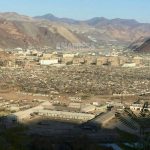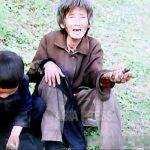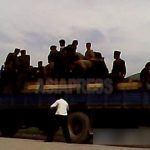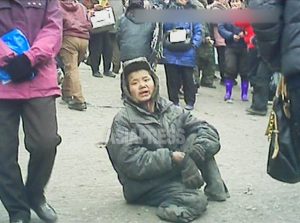
As the number of mobile phone users in North Korea increases, authorities are strengthening their crackdowns on people taking video and photos with mobile phones. This appears to be a measure to prevent the domestic and international spread of videos and photos that the authorities want to conceal. (JEON Sung-jun / KANG Ji-won)
◆ Intensive investigations conducted on those who just store images of fires, fights, or arrests
The number of mobile phone users in North Korea is estimated to be around 4 to 6 million, although this varies by source. Since mobile phones began to spread significantly in 2008, the number of users has steadily risen.
As the number of mobile phone users grows and smartphones with the ability to shoot photos and videos and have access to the domestic intranet have become widespread, authorities seem to be tightening their crackdowns and control due to concerns over the spread of information through these devices.
In early July, a reporting partner residing in Ryanggang Province reported that crackdowns on people taking videos and photos with mobile phones have recently intensified.
"In the past, there were many crackdowns on people taking illegal videos and photos, and photos were inspected during searches. However, as incidents involving mobile phones have increased recently, the crackdowns have intensified. Although the exact details are unclear, there are rumors that during Putin's visit to Pyongyang, someone took a photo with a phone that included Kim Jong-un, which caused a significant issue."
The reporting partner said that on June 29, during a meeting of the Socialist Women's Union of Korea, a police official issued a warning:
"They announced that taking commemorative photos in front of important state facilities, shooting scenes of fires or disaster accidents, arrests, and social disturbances, or storing and distributing such videos, could lead to legal punishment. They advised mobile phone users to be cautious."
The reporting partner expressed frustration, saying, "Even if you have a mobile phone, you can't take a proper photo. If a photo includes military facilities, factory enterprises, shop price tags, or kotjebi (homeless people, usually children), the authorities suspect that it is intended for external distribution, and you’d be subject to intensive investigation."
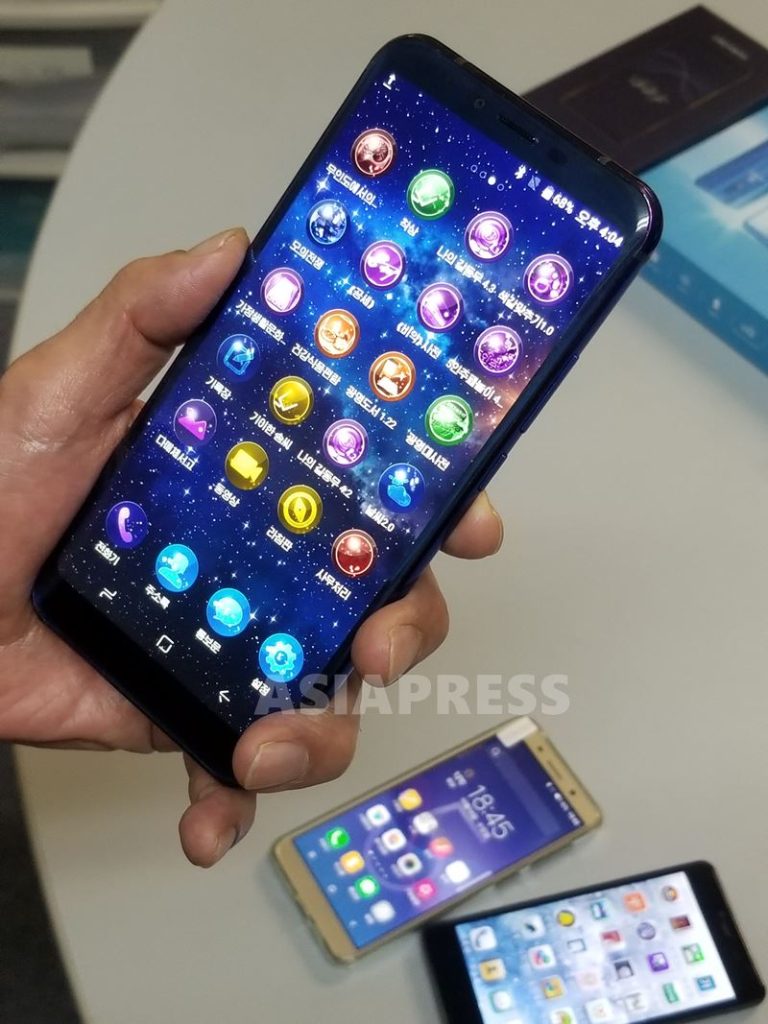
◆ Unprecedentedly intensified crackdowns, perhaps influenced by the “April 27 Directive”
The reporting partner recounted a recent case where members of a guchaldae confiscated and destroyed a person’s mobile phone on the spot for photographing them during a crackdown. The crackdowns are particularly harsh toward people who commit acts that could cause social issues.
※ Guchaldae: Civilian enforcement organizations formed to maintain social order and prevent "non-socialist" activities.
Additionally, the reporting partner said that not only taking sensitive photos but also filming, editing, and sharing everyday hobbies or sports activities are subject to crackdowns.
"Schools and the Socialist Patriotic Youth League are demanding stricter education on filming and sharing videos such as youth fights, acrobatics, and taekwondo performances, editing them, and distributing them on USBs or via mobile phones."
All this appears to be influenced by the “April 27 Directive,” which defined individual video production and distribution activities as “non-socialist.”
<Inside N. Korea>Crackdowns aren’t focused just on the “South Wave” anymore…Hands down the “April 27 Directive” to intensify crackdowns on the form of videos made by domestic individuals
In May 2023, a defector who came to South Korea via the West Sea filmed videos on their mobile phone of a homeless person collapsed on the street and a child begging while waiting for absent parents. These videos were first revealed at the United Nations in March this year, causing a stir. The exposure of North Korean society's flaws in front of the international community may also explain the unprecedently intensified crackdown by the authorities.
※ ASIAPRESS communicates with its reporting partners through Chinese cell phones smuggled into North Korea.
- <Investigation>Current living conditions of North Koreans (1) Poor infrastructure…conditions surrounding water, electricity, heating, and restrooms
- <Interview with a N. Korean Woman>What was happening in the spring of 2024? (1) Who is starving and why?
Farmers protest against lack of food rations, police mobilized Cadres diverted food to other uses - <Inside N. Korea>Crackdowns aren’t focused just on the “South Wave” anymore…Hands down the “April 27 Directive” to intensify crackdowns on the form of videos made by domestic individuals
- <Inside N. Korea>State-led smuggling resumes in the Yalu River, sends seafood and copper ore to China, bringing in UN-sanctioned goods like cars and machinery

